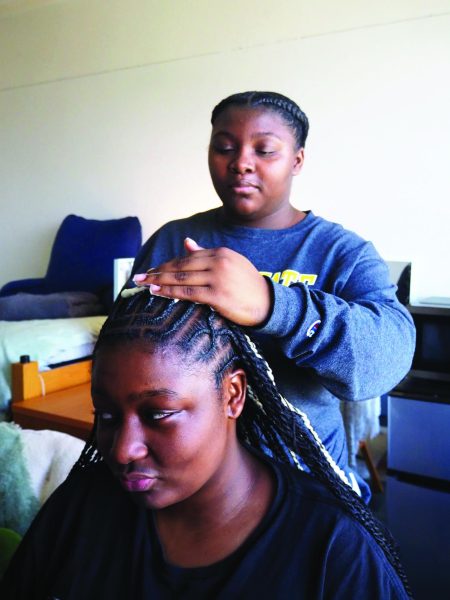Order in the court: Wildcat Judiciary
Wayne State College has its own way of handling on-campus incidents
October 3, 2018
The Student Judicial Board is like the campus’ court. They play as the judge, jury, and executioner.
This year they added two new members whose names are Caitie Lemmons and Grant Mathis. They are both justices in training.
“The board serves as a panel of peers that can hear the allegations of a student’s violation of our student code of conduct,” Assistant Dean David McMahan said. “They end an inappropriate setting when the vice president of student affairs has delegated matters to them and are able to review those cases.”
McMahan is not part of the board, but he assists in it. His responsibility is to ensure that the individual student understands all the rights that they are given for due process under board policy 3200 that they have the right to an adviser, they have a right to know what allegations the student is being brought against them, what the source of those allegations are, that they have an opportunity to bring forth witnesses, and to have their perspective heard on the matter in full.
The board’s responsibility is to weigh all the information that they have, McMahn said.
“It’s not a trial, it’s not an evidentiary proceeding, their job is to be investigative and to bring as much information together as possible so they can better understand and determine whether there has been a violation in one of the policies beyond preponderance of evidence,” McMahan said.
He said the whole thing is basically 50/50 when the scales tip further in a different direction, then that means the difference of having a preponderance.
If they find that a student has violated one of the policies by preponderance of the evidence, then they determine what the sanction should be in that situation, what they should do to make the community whole to offset their impact of their behavior that was a violation the policy, etc.
The types of cases that the board usually hears are referred by the vice president and involve cases that don’t have the potential to result in suspension or expulsion, as those cases are handled by a another board. The board also hears a lot of cases that include parking violations, including people who want to repeal their tickets because they can’t find a parking spot. They also deal with visiting violations, which could result in a separation from institution, which is for the peer judicial board.
The person’s punishment depends on the case. If a person is not found responsible, nothing happens. If a person is found responsible by preponderance of evidence, then the group decides what is appropriate given the settings.








